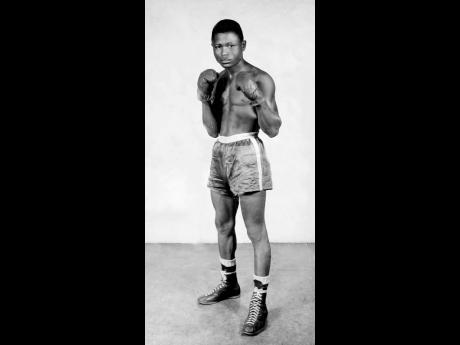The Music Diaries | Alton Ellis against Rude Boy culture
The recent passing of the legendary Jamaican boxer Bunny Grant, revives memories of another great Alton Ellis.
Both gentlemen grew up in Trench Town and rubbed shoulders during the '40s and '50s. The Boys' Town Youth Club, which also housed a boxing gym, was a spot that nurtured their respective talents. The wide expanse of playing area on the outside afforded Grant the opportunity to explore his horse-riding aspirations (as a jockey) before he settled on boxing. Ellis, on the other hand, explored the possibility of being a great dancer on the popular Vere Johns Opportunity Hour Talent show before transitioning into singing.
Rude Boy Culture
But outside of those commonalities and differences, to which should be added their common birth month of September, Ellis viewed Grant as a role model and a trendsetter who blazed a trail that very few could follow. Just about the time that Grant emerged as a force to be reckoned with in international boxing, Ellis was on a mission to destabilise the rude boy culture that was springing up in Jamaica shortly after Independence on August 6, 1962. Just two days earlier, Grant had given Jamaica its first gift as an independent nation, snatching the Commonwealth (then British Empire) Lightweight title from Englishman Dave Charnley at the National Stadium.
In his efforts, Ellis recorded the song Dance Crasher, in which he mentions Grant, and lauded him for his efforts in setting an example for the youth to follow. A big ska hit in 1965-1966, Ellis sang it to the beat of a Treasure Isle All Stars band.
"Be a big fighter,
Be a prize fighter
Instead of a dance crasher,
Let me tell you,
Be a gentleman
You could be a champion
Like Mr Bunny Grant."
Ellis further urged the dance crashers:
"Don't break it up
Please don't make a fuss
Don't use a knife
To take another fellow's life
Go to a gym
And get yourself in trim."
History has it that the recording was primarily directed at a notorious 'bad man' named Buzz B, who frequented the Trench Town area and developed a habit of crashing or mashing up dances. Ellis followed up with four other recordings - Cry Tough, Don't Trouble People - The Preacher, and Blessing Of Love - all on the same topic, all done for producer Duke Reid, and all aimed at overturning the efforts of his adversaries. In the last cut, he urged the hoodlums to:
"Stop your shootings,
No more killings
Away with ratchets,
Show some friendship
Shootings everywhere and every day
Send us blessings of love."
But, generally speaking, Dance Crasher counteracted a set of other songs that were glamorising the rude boy syndrome and promising rich rewards for a market geared at immoral messages and pro-rude-boy songs.
In an interview with Ellis a few years before he passed, he told me: "It was a period when I was anti bad boy. Never like the bad boy business that began to creep up in the country. It was a time when we were crying for some love in the island."
Trying times
The success of Ellis' anti-rude boy songs began curtailing the sales of competing producers, and in short order, he began receiving threats. It was the continuation of the many struggles that he had been through from the beginning of his career. In the early 1960s, he found himself wandering the streets of Kingston in search of a 'bread' despite the success of his debut song - Muriel - at home and in the United Kingdom.
In a 2006 interview, he told me, "I left Coxsone and walked the streets for about 18 months, and that's why I didn't have many ska songs. But friends kept encouraging me to get back into the music, and so I put a group together, calling it Alton and The Flames, and went to Treasure Isle."
Girl I've Got a Date, in late 1965, was his biggest hit there. "It made Treasure Isle rule the business," he said. But it drew the ire of Studio One's boss, Clement Dodd, who, literally, used 'brute force' to bring Ellis back into his fold, with a promise to take him on an English tour. The tour, headlined by The Soul Vendors Band in 1967, was a financial failure and Ellis returned a disillusioned man.
Facing several other similar ordeals, Ellis decided to relocate to the United Kingdom in 1973. He describes the initial period there as stressful. "My records were selling like wildfire, yet I was walking the streets of London, hoping to get some herb or something to sell. It was a very low point in my career," he said.
The turning point for Ellis came with the release of Sho Bi Do I Love You for A & M Records. "It gave me a reprieve as I signed a contract with them." As it turned out, Ellis went on to forge a successful entertainment career in his later years with his UK-based 'All Tone' record label turning out a barrage of hits for him and others.



